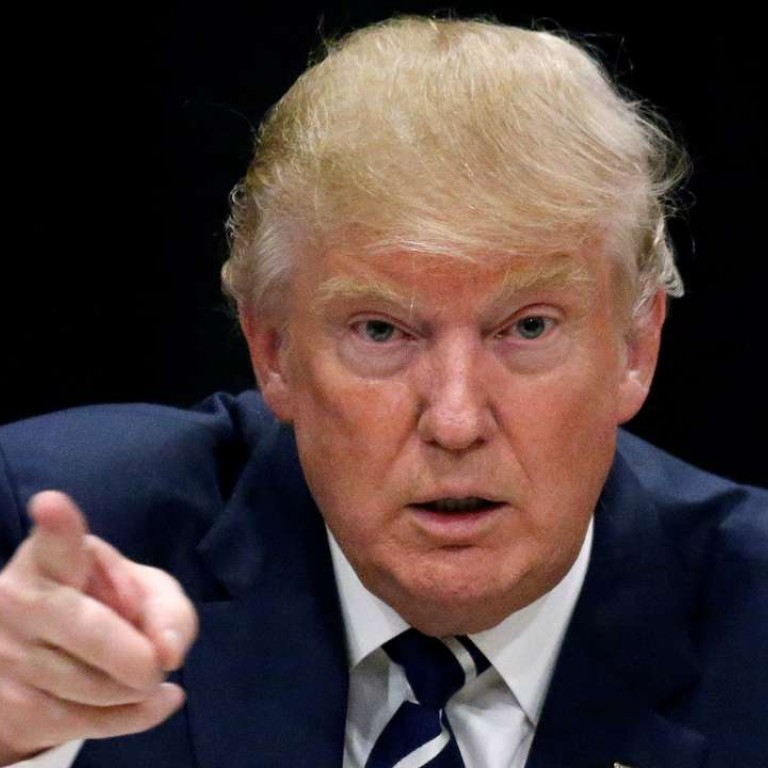
Why Trump needs China onside to ‘make America great again’
Campaign rhetoric about China proved a successful sales pitch for the president-elect but it doesn’t make for a good business plan
Conspicuously absent from US President-elect Donald Trump’s recent video address outlining measures to be taken in the first one hundred days of his presidential term was any mention of China as a currency manipulator.
Maybe his transition team has begun to realise that anti-China campaign trail rhetoric founders in the face of the complexity of the China-US economic relationship.
On the campaign trail, Trump trumpeted his intention to designate China as a currency manipulator on the first day of his presidency. But post-election, there has been, so far, no mention that will happen on Day One or at all.
Yet the president-elect did not shy away from another controversial campaign position and has announced he would issue a notification of intent to withdraw from the Trans-Pacific Partnership (TPP) on the first day of his four-year term in office, a decision which itself has implications for China.
Trump’s rejection of US membership of the TPP may be a boon to Beijing, elevating to the fore the proposed China-backed Regional Comprehensive Economic Partnership, a 16-country grouping including China itself, Australia, India, Japan, New Zealand and South Korea, and all members of the Association of Southeast Asian Nations.
China is a key potential source of the very dollars the Trump administration will need in order to finance the large-scale infrastructure projects promised in the Republican manifesto
That aside, a former chairman of Morgan Stanley Asia, Yale University’s Stephen Roach, feels that “Donald Trump’s economic strategy is severely flawed,” arguing that the president-elect “wants to restore growth via deficit spending in a country with a chronic shortfall of saving.”
In a US Thanksgiving Day piece for Project Syndicate, Roach argued that “the Achilles’ heel of Trumponomics” is “a blatant protectionist bias that collides head-on with America’s inescapable reliance on foreign saving and trade deficits to sustain economic growth”.
“The so-called [US] net national saving rate – the depreciation-adjusted sum of business, household, and government saving – stood at just 2.4 per cent of national income in mid-2016,” Roach wrote.
And “while that’s an improvement from the unprecedented negative saving position in 2008-2011, it remains far short of the 6.3 per cent average that prevailed over the final three decades of the twentieth century,” he added.

Given its status as the country that makes up the largest single national component of the US’ trade deficit, China is a key potential source of the very dollars which the Trump administration will need in order to finance the large-scale infrastructure projects promised in the Republican manifesto.
But, as Roach points out, the United States “had trade deficits with 101 countries in 2015 – a multilateral problem stemming from a [US] saving shortfall that cannot be effectively addressed through country-specific ‘remedies’.”
Indeed, if the United States does close down trade with China, through whatever means, Roach argues that “without addressing America’s chronic savings shortage” it would be likely that China’s share of the US trade deficit “would simply be redistributed to other countries – most likely to higher-cost producers.”
US consumers might find imported goods more expensive.

And then there’s the yuan itself.
Donald Trump said in February that China was “the greatest currency manipulator that’s ever been on this planet” and that if Beijing “doesn’t stop devaluing [the yuan] we’re going to have to charge them a tax on the goods coming in.”
But there’s another angle.
“Many economists anticipated conservative policies to weaken the dollar” in the event of a Trump presidency, wrote Mitsubishi UFJ Morgan Stanley Securities chief equity strategist Chisato Haganuma on November 21.
“But under Mr Trump’s ‘America first’ policy a significant decline in the dollar would be undesirable because higher prices for imported goods would hurt low- and mid-income earners,” Haganuma argued.
By that logic, and in stark contrast to the campaign trail rhetoric, a weaker dollar and stronger yuan would not necessarily be in the interests of Trump’s electoral base.
Campaign rhetoric about China proved a successful sales pitch for the president-elect but doesn’t necessarily make for a good business plan. As a business man himself, Donald Trump must surely know that ‘Making America Great Again’ won’t be made easier by a worsening in China-US economic relations.

